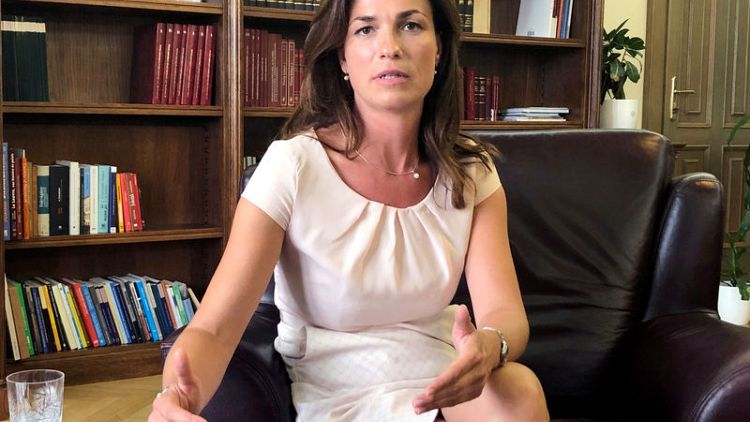BUDAPEST (Reuters) - The Hungarian government has proposed legislation that would increase its control over the country's courts and independent schools, raising concerns from rights groups.
One measure submitted to parliament this week would strengthen the Constitutional Court, most of whose judges are already elected by the ruling party.
Since taking power nearly a decade ago, Prime Minister Viktor Orban's Fidesz party has tightened its grip on the media and courts, often sparking conflict with the European Union.
Earlier this month, the government abandoned plans to set up separate administrative courts.
But it vowed to pass legislation to speed up administrative court cases that involve government bodies, and Justice Minister Judit Varga submitted a 200-pages bill this week.
It would allow state bodies to appeal to the Constitutional Court against decisions by lower courts if they think the rulings infringe their constitutional rights or restrict their authority.
Amnesty International said the bill would strengthen the control of the Constitutional Court over lower courts.
The Hungarian Helsinki Committee said the bill would allow the government to channel politically sensitive cases to the Constitutional Court, which had often ruled in the government's favour in the past.
The Constitutional Court has 15 members, elected by a parliament in which Fidesz has a two-thirds majority.
Varga has said the government aimed to provide a "clear framework" for administrative litigation, and speed up appeals.
Orban says Fidesz has won repeated election victories since 2010 and its large majority in parliament entitles it to make changes.
The government also submitted draft legislation to parliament which would force independent schools to re-apply for their licences from next year, making their future operation conditional on approval by the minister in charge of education.
Alternative schools - whose teaching methods and curricula differ from state schools - would have to apply for a new licence by April. Those failing to do so will not be allowed to open for the next school year.
"From now on, it will be up to the whims of the minister to decide which schools will be able to operate and which will not," said Marton Asboth, a lawyer at the Hungarian Civil Liberties Union.
The bill says the changes will ensure compatibility among schools.
The Hungarian Waldorf Alliance, a group of alternative schools, said the bill would end state recognition of alternative teaching methods.
Billionaire George Soros has already had a run-in with the government over education. His Central European University had to open a campus in Vienna this year after it said key teaching programmes were forced out of Hungary.
(Reporting by Krisztina Than and Gergely Szakacs; Editing by Giles Elgood)
